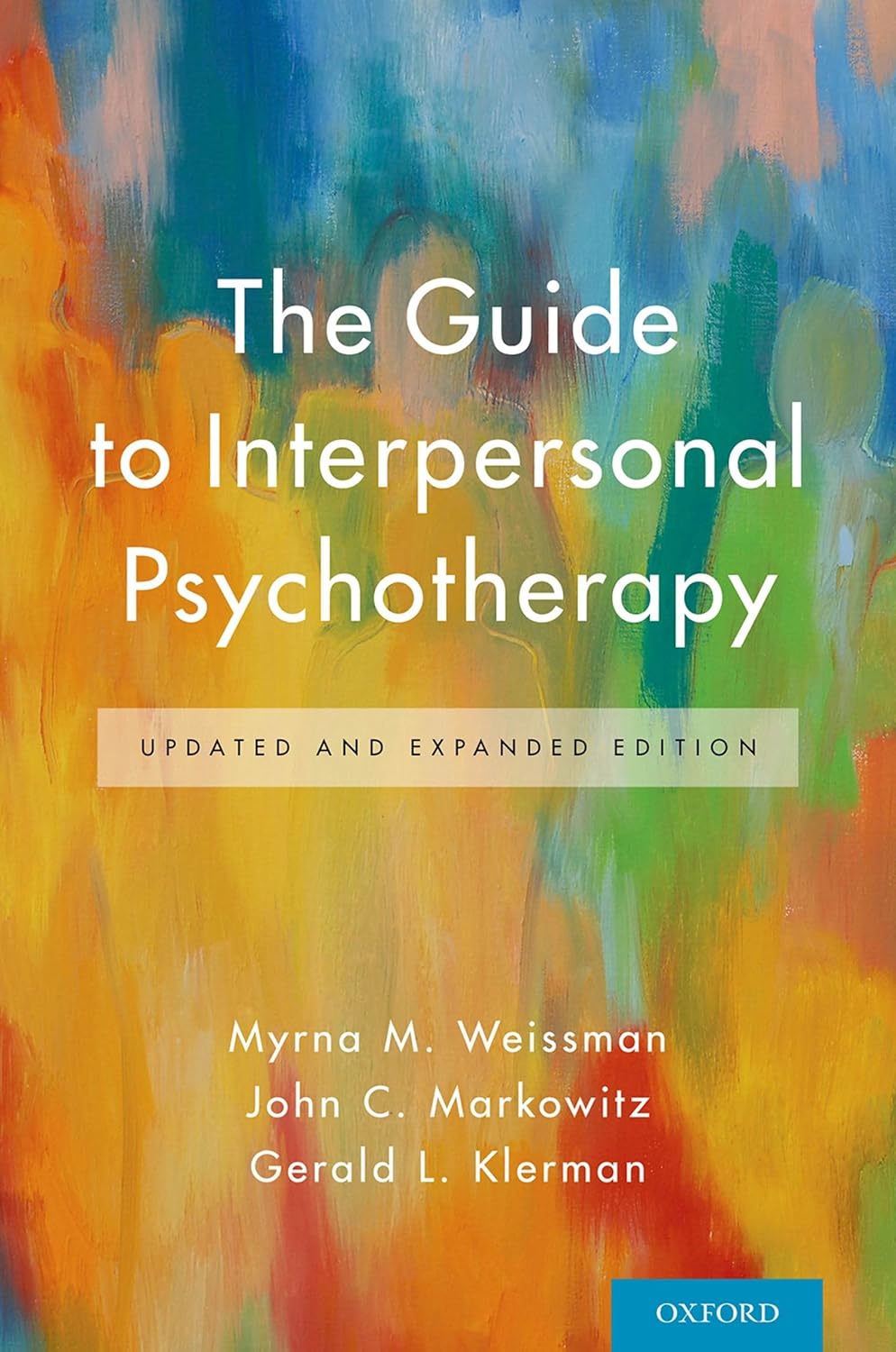- Last edited on January 11, 2024
Interpersonal Therapy (IPT)
Primer
Interpersonal Psychotherapy (IPT) is a structured and manual-based treatment that targets the social and interpersonal context of an individual's illness. The therapy focuses on the “here and now” and deals with grief, dysfunctional relationships, interpersonal conflicts, and role transitions. IPT is specifically indicated for individuals with a major depressive episode.
History
- Originally called “high contact” therapy, IPT was developed in 1969 at Yale University. IPT was inspired by cognitive-behavioural as well as psychodynamic therapy.
Length
- The average length of IPT is about 16 sessions (16 weeks)
Indications
Focus
IPT typically focuses on one of four focal interpersonal problem areas:
- Grief or Bereavement (e.g. - death of a person close to the patient)
- Role disputes (e.g. - poor interpersonal relationship and non-reciprocal role expectations between two individuals)
- Role transitions (e.g. - going from being employed to unemployed, working to retiring, single to married)
- Social deficits with interpersonal deficits or sensitivity (e.g. - there are no clear acute interpersonal events associated with the depressive symptoms, but rather there is a longstanding history of deficits or contention in interpersonal relationships)
Key Concepts
- IPT's core concept is that interpersonal relationships alone do not cause depression.
- However, depression can develop within an interpersonal context and affects relationships and the roles of people within those relationships.
- By addressing interpersonal issues, IPT puts emphasis on the way symptoms are related to a person's relationships, including their family and peers.
- The goal of IPT is to help patients adapt to life changes, connect with social supports, and improve communication.
- IPT focuses on affective exploration of relationships to foster adaptation, and connection with supports.
- The immediate goals of IPT are rapid symptom relief and improved social adjustment.
- The long-term goal of IPT is to enable those with depression to make their own needed adjustments.
- This allows patients to better cope with and reduce depressive symptoms.
Structure
Opening
- Opening sessions (sessions 1 to 3)
- The therapist develops an alliance with the patient, psychoeducation is provided about depression. The Patient is also assigned the “sick role.”
- Focus on collecting information and making decisions about the focus of therapy.
- The therapist helps the patient create a list of all the key relationships in the patient’s life (interpersonal inventory)
- These relationships are grouped according to the four main problem areas.
Middle
- Middle sessions (sessions 4 to 14)
- The patient concentrates on trying to improve the chosen problem area or areas with the support of the therapist.
- Key techniques used include:
- Communication analysis, which involves the patient providing a detailed “play-by-play” account of a conversation or argument with a significant other (or interpersonal contact). The analysis focuses on the feelings and intentions behind the conversation (what is being said, what is felt, and what is actually intended to be wished for or understood).
- Questions that can help facilitate a communication analysis includes:
- “So what did you say?“ ”…And then what did they say?“ “Then what happened?”
- “How did you feel?” “Could you tell him or her how you felt?”
- “Was that the message you wanted to convey?”
- “How do you think that made them feel?”
- “How could you have said it differently?”
- “How do you think she would have felt had you said it differently?”
- “How would you have felt had you said it differently?”
- Role playing, which involves the therapist asks the patient to describe a problematic situation and the patient plays him or herself and the therapist plays the significant other.
- The patient and therapist work to develop solutions to the problems, and the patient tries to implement the solutions between sessions.
Final
- Final sessions (sessions 15 to 16)
- Focuses on dealing with any sense of loss associated with the end of therapy as well as reviewing the issues that were identified in the interpersonal inventory and the progress made in dealing with them.
